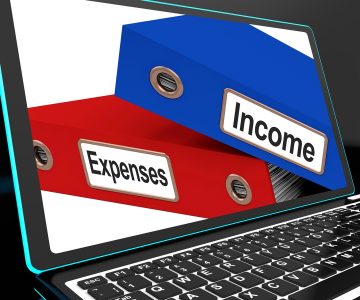Discharging Your Debt In Bankruptcy
Filed under: Debt
 When you successfully resolve and complete a bankruptcy, your eligible debts will be labeled as “discharged“. This means that your debts are no longer enforceable for collections by the creditor. This is the ultimate goal of filing for bankruptcy and the desired outcome by anyone seeking debt elimination.
When you successfully resolve and complete a bankruptcy, your eligible debts will be labeled as “discharged“. This means that your debts are no longer enforceable for collections by the creditor. This is the ultimate goal of filing for bankruptcy and the desired outcome by anyone seeking debt elimination.
The end result of a successful case is a debt discharge can vary depending on the type of bankruptcy you file; Chapter 7 or Chapter 13. How the debts are managed in either of these types of bankruptcy is important to consider before you seek debt relief through bankruptcy.
Chapter 7 Bankruptcy
In a Chapter 7 bankruptcy your debts will be discharged and you will be free from debt collection attempts. This is the most common type of bankruptcy filed in the United States and is the most effective for debt relief. If you are filing for Chapter 7 bankruptcy the debts must be primarily consumer debts. The consumer debts are defined as a debt incurred by an individual primarily for a personal, family, or household purpose. You must pass a means test in order to file for Chapter 7 bankruptcy.
Chapter 13 Bankruptcy
In a Chapter 13 bankruptcy, you can keep your assets and pay off a portion of your unsecured debt. The amount you pay depends on how much debt you have, the value of your assets, and the amount of disposable income you have. After completion of the Chapter 13 plan, the non–dischargeable unsecured debts will be reorganized, while the discharged debts will have the ability to be tax deductible.
The filing of a bankruptcy case may result in the collection of your debts to be delayed or even stopped. This is because the filing of the bankruptcy puts a “stay“ on the creditor‘s ability to collect the debt. This means that the creditor is not allowed to collect on a debt and can not sue or take any further action to attempt to collect the debt from you. When the filing of a bankruptcy petition is made with the court, the creditor has the right to file a notice of objection within the time frame the court provides. If there is an objection, the court will hold a hearing and hear from both the debtor and the creditor. If the court finds that the filing of the bankruptcy was without cause, the court can deny the discharge of the debt and the case will be dismissed.
For more information about bankruptcy or how bankruptcy may help you eliminate your debts, contact one of our experienced Houston bankruptcy lawyers at 713-979-2279.
Disclaimer: This blog post is for general informational purposes only and does not constitute legal advice. Your specific situation may vary. Please consult with an attorney at Baker & Associates to discuss your particular case.

